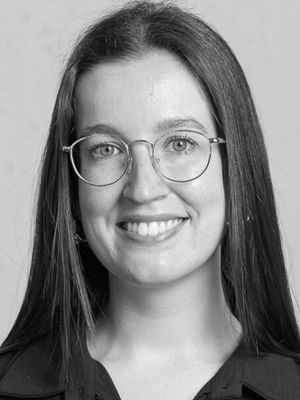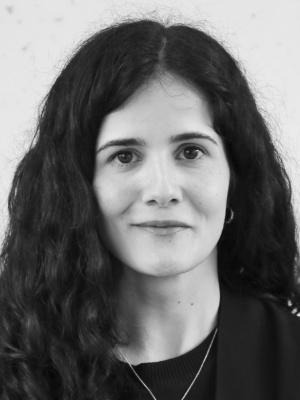
Decoding the neuron-astrocyte dialogue that supports cognitive processing
Cognitive functioning is the intellectual activity that includes mental processes, such as, attention, learning and memory, executive function, verbal fluency, and working memory. In the neuroscience field, thousands of studies linked these computational processes to specific brain regions, and within these, to defined cellular circuits that operate in excitatory-inhibitory balances. These balances are required for normal cognitive processing, while its malfunction often leads to cognitive deficits. Brain circuits are composed of neuron ensembles and glial cells. In the last thirty years, the classical paradigm that brain computation is based exclusively on neuronal processing has been challenged by the emerging body of evidence describing dynamic neuron-glia interactions within brain circuits. Astrocytes – a type of glia that is found in large numbers throughout the mammalian brain – are highly active and dynamic cells, influencing a myriad of processes from homeostatic control to synaptic modulation. The neuron-astrocyte dialogue is nowadays widely accepted, and it has been demonstrated in several brain regions, namely those responsible for cognitive computation such as the hippocampus and the cortex. As expected, recent studies from us and others showed that these interactions at the cellular level are critical for the computation of complex cognitive behaviors.
The main objective of this project is to dissect the cellular mechanisms by which astrocytes influence cognitive functions processed by the prefrontal cortex. This main goal will be addressed by using different strategies to rescue cognitive function impaired in models of astrocytic dysfunction.
Funding Agency
FCT; Bial Foundation
Project Reference
Project Members


Daniela Abreu

João F Viana

João Machado

Alexandra Veiga

José Duarte Dias

Samuel Alves
Main Project Outcomes
S. Queirós, “Right ventricular segmentation in multi-view cardiac MRI using a unified U-net model”, in E. Puyol Antón et al. (eds) Statistical Atlases and Computational Models of the Heart. Multi-Disease, Multi-View, and Multi-Center Right Ventricular Segmentation in Cardiac MRI Challenge. STACOM 2021. Lecture Notes in Computer Science, vol 13131, pp. 287-295, Springer, Cham, 2022.
“Best Paper Award in the M&Ms-2 Challenge”, by M&Ms2 Challenge organizers and the Medical Image Computing and Computer Assisted Intervention (MICCAI) Society.
Main Project Outcomes
Publications:
– Oliveira J, Araque A. 2022 Astrocyte regulation of neural circuit activity and network states. Glia. In press
Escartin C, Galea E, … Oliveira JF, … Sofroniew MV, Verkhratsky A. (2021) Reactive astrocyte nomenclature, definitions, and future directions. Nature Neuroscience 1–14.
Batiuk MY, Martirosyan A, Wahis J, Vin F de, Marneffe C, Kusserow C, Koeppen J, Viana JF, Oliveira JF, Voet T, Ponting CP, Belgard TG, Holt MG. (2020) Identification of region-specific astrocyte subtypes at single cell resolution. Nature Communications 11:1–15. IF=11.9;
Guerra-Gomes S, Sousa N, Pinto L, Oliveira JF (2018) Functional roles of astrocyte calcium elevations: from synapses to behavior. Front Cell Neurosci 11:427.
Sardinha VM, Guerra-Gomes S, Caetano I, Tavares G, Martins M, Reis JS, Correia JS, Teixeira-Castro A, Pinto L, Sousa N, Oliveira JF (2017) Astrocytic signaling supports hippocampal–prefrontal theta synchronization and cognitive function. Glia 65:1944–1960.
Tavares G, Martins M, Correia JS, Sardinha VM, Guerra-Gomes S, Neves SP das, Marques F, Sousa N, Oliveira JF. (2016). Employing an open-source tool to assess astrocyte tridimensional structure. Brain Structure Function 1–11.
Oliveira JF, Sardinha VM, Guerra-Gomes S, Araque A, Sousa N (2015). Do stars govern our actions? Astrocyte involvement in rodents’ behavior. Trends in Neurosciences 38:535–549.
Lima A, Sardinha VM, Oliveira AF, Reis M, Mota C, Silva MA, Marques F, Cerqueira JJ, Pinto L, Sousa N, Oliveira JF (2014) Astrocyte pathology in the prefrontal cortex impairs the cognitive function of rats. Molecular Psychiatry 19, 834–841.
Awards/grants:
2019: Travel Grant Marie Curie Alumni Association
2019: IBRO/PERC Grant – ICVS Satellite Meeting
2012: Marie Curie Intereuropean Fellowship
Projects: 8 as PI (4 ongoing) – 1.2+ million euro
Patent: PPP117831 (provisional)



Contact us
Phone: +351 253 604 967
Fax: +351 253 604 809
Email: icvs.sec@med.uminho.pt
Address
Life and Health Sciences
Research Institute (ICVS)
School of Medicine,
University of Minho,
Campus de Gualtar
4710-057 Braga
Portugal

Copyright ©2022 ICVS. All Rights Reserved



Copyright ©2022 ICVS. All Rights Reserved
Address
Life and Health Sciences
Research Institute (ICVS)
School of Medicine,
University of Minho,
Campus de Gualtar
4710-057 Braga
Portugal



Copyright ©2022 ICVS. All Rights Reserved
Address
Life and Health Sciences
Research Institute (ICVS)
School of Medicine,
University of Minho,
Campus de Gualtar
4710-057 Braga
Portugal


